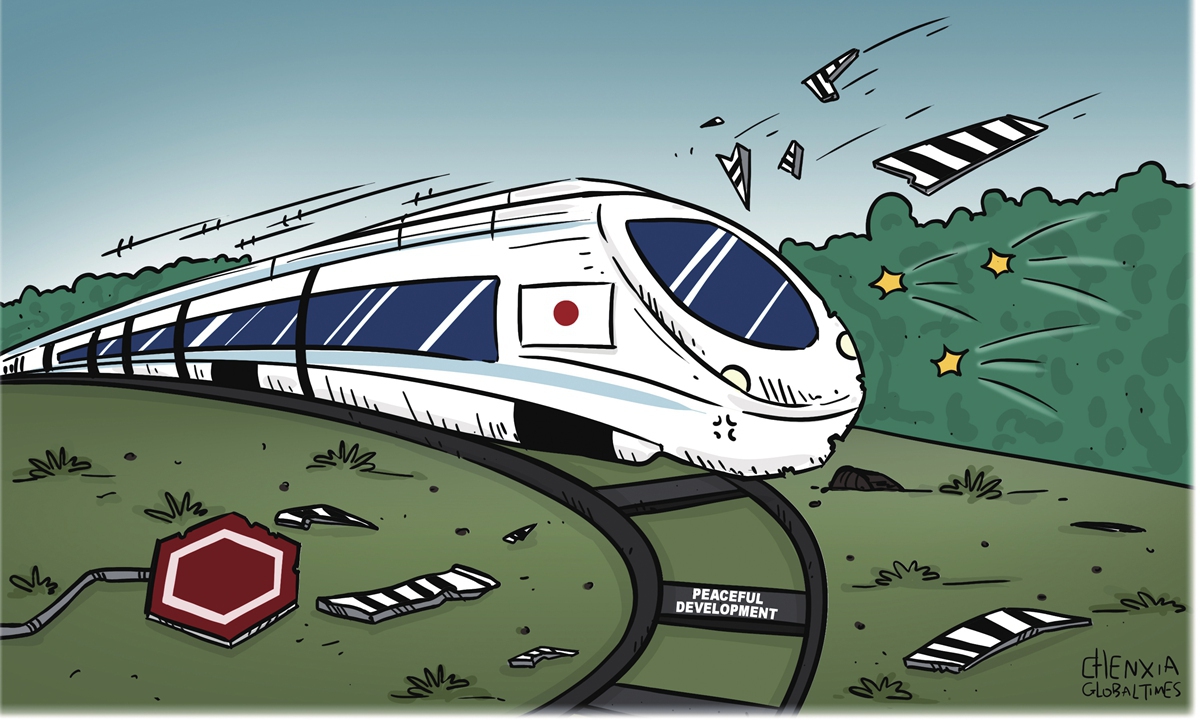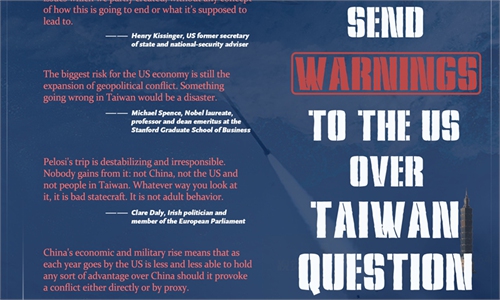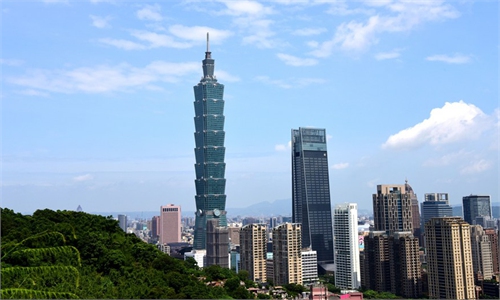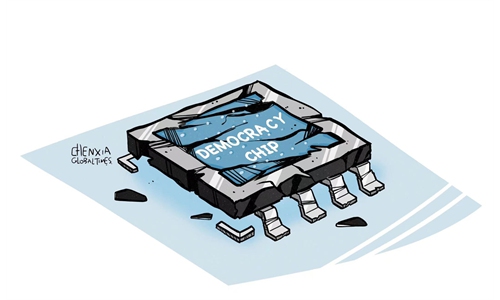
Illustration: Chen Xia/Global Times
In a meeting with Taiwan regional leader Tsai Ing-wen on Tuesday, Keiji Furuya, a Liberal Democratic Party lawmaker of Japan, whose trip to the island has prompted stern warnings from Chinese central authorities, expressed hope for Taiwan High Speed Rail Corp (THSRC) to purchase high-speed rail cars from Japan, according to media reports.Furuya touted THSRC as a symbol of "solid friendship" and asserted that cooperation is a "must." The Japanese politician also reportedly raised the deal in his meeting with Su Tseng-chang, head of Taiwan's executive body, on Monday.
Regarding Furuya's trip, a spokesperson for the Chinese Foreign Ministry said on Tuesday that China strongly deplores the egregious move by the Japanese politician and will take resolute and strong measures to defend national sovereignty and territorial integrity.
By repeatedly bringing up the rail deal during the visit, the Japanese lawmaker laid bare the real goal of his trip - to save a deal that has fallen apart. Clearly, by putting on such a political stunt, Furuya is trying to make the secessionist Democratic Progressive Party (DPP) authority on the island to pay. And the DPP usually pays - at the expense of the people in Taiwan region.
THSRC started negotiating a procurement deal with a Japanese consortium several years ago for the replacement and renewal of existing train cars. But in 2021, THSRC announced that the talks broke down because the Japanese price proposal was unreasonably expensive compared with normal market levels. The deal is so terrible that, according to Taiwan media reports in March this year, THSRC may turn to alternative suppliers in Europe, even though it may require a transition from Japanese to European systems.
Still, Japanese politicians continue to try to save the deal, because they see both the precedent and possibility of the DPP authority ceding economic interests for political stunts like the trip by Furuya. It is an ugly trade between the DPP and radical foreign politicians.
Such an ugly trade has serious consequences. For starters, if the DPP authority actually agrees to the deal, it means THSRC and ultimately the residents of Taiwan will pay substantially more for Japanese train cars.
Taiwan's economy has been held hostage to such trade-offs between economic interests and so-called "political support" for a long time. The DPP authority has already accepted pork and beef containing ractopamine and nuclear contaminated food. As foreign politicians' appetites grow and continue to push for more economic concessions from the DPP, the region's economy will continue to suffer.
Indeed, not only do Japanese politicians see the nature of the DPP authority's political selfishness in betraying the island's interests, but other anti-China Western politicians also see it clearly and are trying to exploit it.
These days, anti-China politicians visited Taiwan one after another. In addition to gaining personal political capital, it is not uncommon for them to demand obviously unfair concessions on various economic issues from the DPP authority. It is foolish and grossly irresponsible of the "Taiwan independence" forces to put the island in a position where everyone can extort interests.
In pursuit of their own political interests, they have gone too far down the road of harming the interests of the people on the island. The ugly trade between the separatist DPP authority and radical foreign politicians must stop.
Chinese central authorities have repeatedly vowed to safeguard China's sovereignty, security and development interests and punish those trying to separate Taiwan from China. The debt of hurting the interests of the Chinese nation will be liquidated sooner or later. That is a warning for both the DPP authority on the island as well as radical foreign politicians who are trying to hurt China's national interests.



